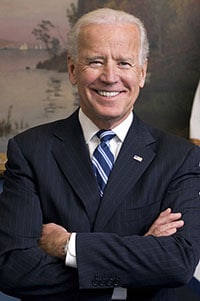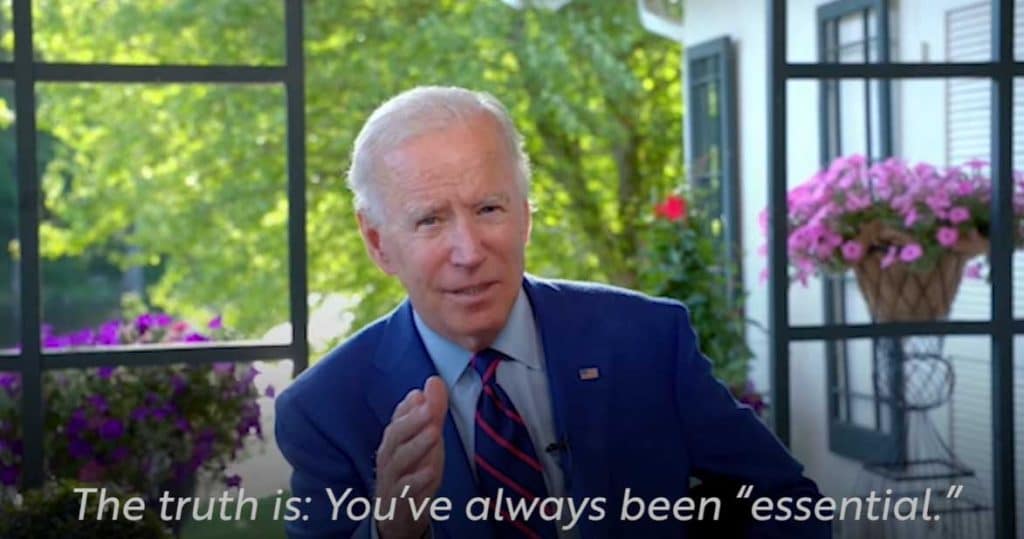Larry Willis, president of the AFL-CIO Transportation Trades Department, of which the SMART Transportation Division is a member, sent the following letter on July 27 petitioning Transportation Secretary Elaine Chao to issue a regulation requiring passengers to wear masks as the COVID-19 national emergency continues. The letter is reproduced below. The request also has been detailed in an article by The Washington Post.
Dear Secretary Chao:
On behalf of the Transportation Trades Department, AFL-CIO (TTD) and our 33 affiliated unions across the transportation industry[1], I write today to petition the Department of Transportation (DOT) to expeditiously promulgate regulation to mandate the usage of masks or face coverings for passengers traveling with DOT-regulated commercial transportation providers during the course of the Presidential Declaration of Emergency for COVID-19.[2]
Since the pandemic began, over four million Americans have been infected with COVID-19, and approximately 150,000 have tragically lost their lives. Despite this, thousands of workers in the passenger transportation industry have continued to go to work on planes, buses, ferries, and trains in increasingly dangerous conditions. Regrettably, these employees have not been spared the effects of the disease, and each TTD union involved in passenger transportation has reported infections and deaths among their frontline workers.
While these bus drivers, pilots, flight attendants, train crews, ferry operators, and others are faced with an impossible choice every day between risking their health and losing their livelihood, we acknowledge that the irreplaceable services they provide must continue to keep the U.S. economy running. Unfortunately, efforts to protect these employees from inherently hazardous workplaces and the threat of deadly communicable disease have been limited to a patchwork of state or local mandates, and a deeply inadequate federal response consisting of non-mandatory guidance.
These limited mandates from non-federal jurisdictions are helpful, but are limited in scope and impact. To date, barely half of states have enacted mandatory mask requirements in public, while the country is continuing to set global records on new infections per day.[3] [4] The COVID-19 pandemic has become a national crisis, and it is time that it receives a strong national response. The federal government is uniquely positioned to address this problem, particularly as it relates to a multimodal transportation system stretching coast to coast, connecting millions of travelling Americans. Not only does DOT have the ability to ensure uniform safety standards across transportation workplaces, it also provides enforcement capabilities that cannot be replicated by public or private transportation providers alone.
As cases continue to soar, it is thus incumbent on DOT to take decisive action to protect frontline transportation workers from the spread of COVID-19 through a regulatory mandate on passenger mask usage.[5] DOT has already acknowledged the utility of such prophylactic measures, including recommending that transportation providers follow CDC guidelines [6] and additional publications of modal-specific recommendations.[7] Today we request that DOT move beyond guidance and adopt actual mandates to keep transportation workers safe on the job. This regulation should require that passengers wear masks covering the nose and mouth while on board buses, trains, airplanes, and passenger vessels, as well as in boarding areas and associated facilities including airports and stations. The regulation should also make clear that a transportation provider has an obligation to refuse to transport any passenger who is unwilling to comply for reasons unrelated to a disability that would prevent them from doing so.
Established and non-rebuttable scientific evidence makes clear the value in a passenger mask mandate. Many passenger transportation workers work in high-risk enclosed environments, like airplanes, airports, buses, stations, and trains, where the benefits of social distancing or outside airflow are impossible. For these employees, mandated masks are the best available defense against COVID-19 transmission.
A recent study in the New England Journal of Medicine found that speaking just two words, less than a passenger might speak to a flight attendant or Amtrak conductor taking tickets, generates numerous particle droplets between 20 to 500 micrometers, but that the use of a covering blocked nearly all of them.[8] In another study, researchers determined that widespread mask use, even the use of homemade masks, could drastically reduce COVID-19 transmission and prevent future “waves”. [9]
Topically, a letter to the editor from a pair of Chinese researchers discusses a case study of a COVID-19 positive passenger utilizing bus services. In the case, an individual began to feel symptoms while riding a motorcoach but did not don a face mask. Following this trip, at least five other passengers out of 39 tested positive. The individual then boarded a minibus, this time wearing a mask. Out of 14 passengers on that bus, zero tested positive.[10] While anecdotal, this and a number of further epidemiological case studies point to the efficacy of wearing a mask to reduce transmission from COVID-19 positive individuals.
This research and these findings hardly stand alone—the scientific community writ large has nearly universally come to the determination that extensive use of face masks provides extremely meaningful protection from transmission. The efficacy of mask usage is also borne out by the mitigation successes of several countries with high levels of mask compliance, such as Japan, South Korea, and Thailand. It is therefore unsurprising that this level of mask use is now recommended in numerous CDC guidance documents.
However, non-mandatory guidelines and a patchwork of mandates or additional guidelines from private companies, states, and other jurisdictions have failed to achieve the level of mask usage that is necessary. A recent Gallup poll found that only 44% of Americans reported always using a mask while outside the home, while 30% reported never doing so. Continuing to put transportation employees in harm’s way by failing to promulgate mandates will only ensure additional spread of COVID-19 and the preventable deaths of members represented by TTD unions. For this reason, DOT must immediately proceed with a mandate.
We believe strongly that DOT has the broad authority to take this action to improve workforce health and safety for thousands of workers. Further, examples of regulatory and statutory authorities for a mandate to protect workers from dangerous health conditions exist across modal agencies.
The Federal Aviation Administration (FAA) has clear statutory authority for promoting safe flight of civil aircraft in air commerce, including mandates to protect occupants of aircraft from risks and hazards (49 USC 44701, 44703, 44507). FAA also has existent regulation concerning passengers traveling with communicable diseases, and as recently as 2006 explicitly stated that “in light of the statutory duties described above, the FAA has determined that it is a public health authority.”[11] In totality, these and other items speak to the appropriateness of the actions we request in this petition.
Similarly, FRA’s recent System Safety Program rulemaking sets requirements for passenger rail carriers to create plans to reduce hazards for employees, defined as “as any real or potential condition that can cause injury, illness, or death; damage to or loss of a system, equipment, or property; or damage to the environment”. [12] The Federal Transit Administration uses a similar definition within the context of its Public Transportation Agency Safety Plans contained at 49 C.F.R. 673. In both circumstances, the established role of DOT in combating illness in the workplace is evident.
While the listed citations and agencies are not meant to be exhaustive, they are clear demonstrations that various justifications for a passenger mask mandate exist across DOT agencies, and that any determination otherwise is based in a deliberate and improperly narrow reading of both statute and regulation.
In recent testimony to a House of Representatives panel, GAO’s Director of Physical Infrastructure Heather Krause also offered the opinion that DOT has a clear leadership role to play in combating COVID-19, when speaking on the subject of the DOT/FAA’s efforts in the development of a national aviation-preparedness plan, stating that:
“We continue to believe that DOT would be in the best position to lead the effort because FAA and DOT have stronger and deeper ties to, as well as oversight responsibility for, the relevant stakeholders that would be most involved in such a broad effort, namely airlines, airports, and other aviation stakeholders”.
We agree strongly with the Government Accountability Office’s statement, and believe that DOT is the appropriate body to implement a passenger mask mandate, stemming from both its existing authorities and its particular knowledge of, and connection to, the affected sectors.
While it is our hope that DOT accepts our petition, we also note that due to the realities of the COVID-19 pandemic, proceeding expeditiously in order to reduce spread and fatalities is of the utmost importance. Unlike in normal circumstances, it is simply not viable to proceed with a standard rulemaking process over the course of months, if not years. Therefore we also call for DOT to exercise its authority under Section 553(b)(3)(B) of the Administrative Procedure Act (APA), suspending notice and comment period and proceeding to an immediately effective Interim Final Rule. As required by the APA, we believe a rapid response to the pandemic meets the statutory threshold of a “good cause” and that going through normal procedures would be “impracticable, unnecessary, or contrary to the public interest.”
To date, TTD and our affiliate unions have filed a number of petitions and requests with DOT and its modal agencies on numerous issues related to the COVID-19 pandemic. We are disappointed that the Department has not taken affirmative actions on these items and continue to believe that these requests are warranted by existing conditions in the transportation industry. We appreciate DOT’s consideration of this petition and hope that the Department will begin to take the necessary steps to protect transportation workers. We look forward to working with the agency to protect the frontline workforce and the traveling public from COVID-19 infection.
Sincerely,
Larry I. Willis
President, AFL-CIO Transportation Trades Department
PDF Version
[1] Attached is a list of TTD’s 33 affiliated unions.
[2] To include, but not limited to travel provided by an air carrier (as defined in 49 USC 40102), a passenger vessel operator, a commuter authority or intercity passenger railroad, a transit agency, a school bus operator or a motorcoach operator, and at related facilities such as airports and stations.
[3] https://www.cnbc.com/2020/07/20/more-than-half-of-us-states-have-statewide-mask-mandates.html
[4] https://www.npr.org/sections/coronavirus-live-updates/2020/07/18/892677119/world-sets-daily-record-in-new-coronavirus-cases
[5] TTD acknowledges reasonable exceptions for individuals who are unable to wear a mask due to a disability or documented medical condition.
[6] For example, FRA Safety Advisory 2020–01; FTA Safety Advisory 20-01
[7] For example, FTA’s COVID-19 Resource Tool; FAA’s May 2020 Safety Alert for Operators
[8] Anfrinrud, Phillip, et al, Visualizing Speech-Generated Oral Fluid Droplets with Laser Light Scattering, New England Journal of Medicine, May 21, 2020.
[9] Stutt, Richard, et al, A modelling framework to assess the likely effectiveness of facemasks in combination with ‘lock-down’ in managing the COVID-19 pandemic, Proceedings of the Royal Society, June 10, 2020.
[10] Liu X, Zhang S. COVID-19: Face masks and human-to-human transmission, Influenza Other Respir Viruses. April 5, 2020.
[11] 71 FR 8042




